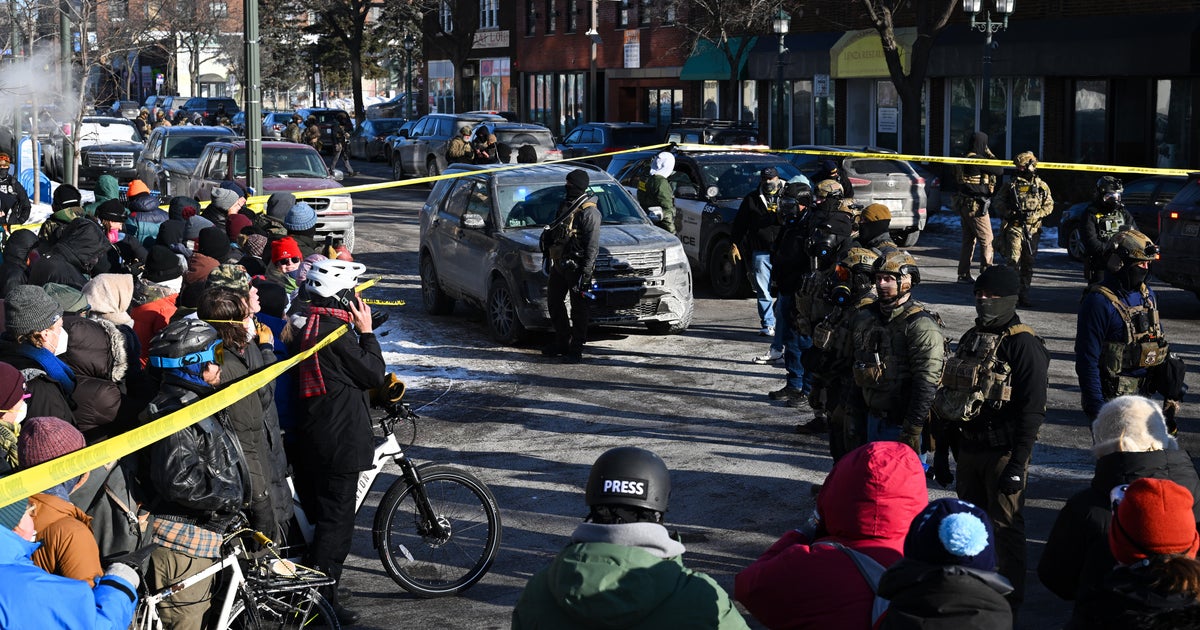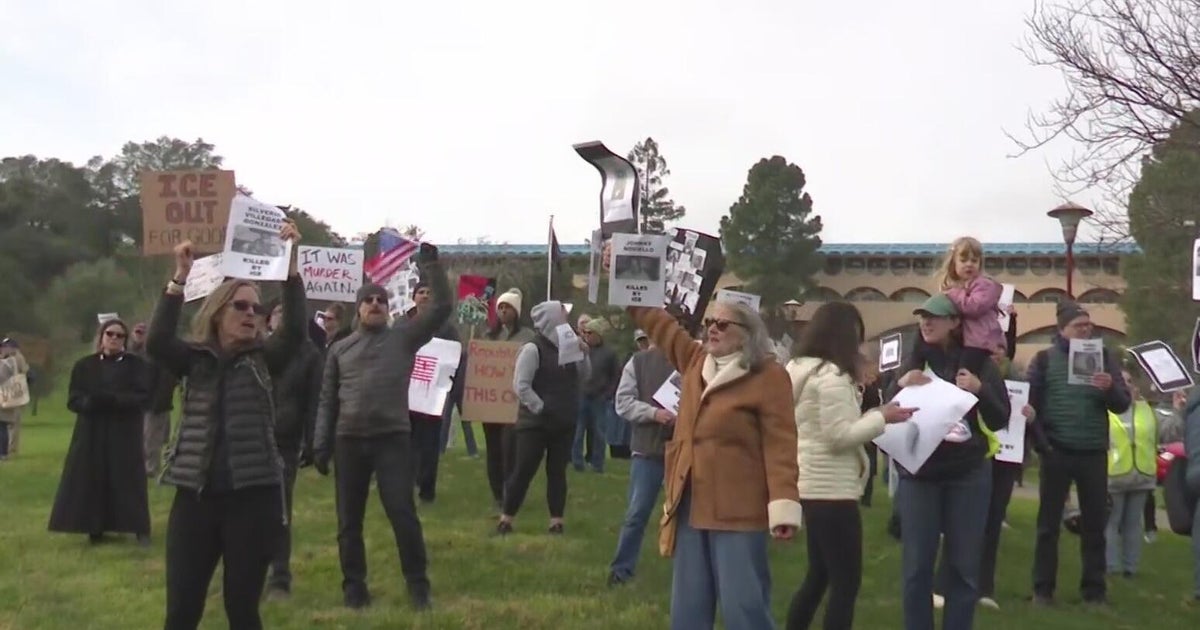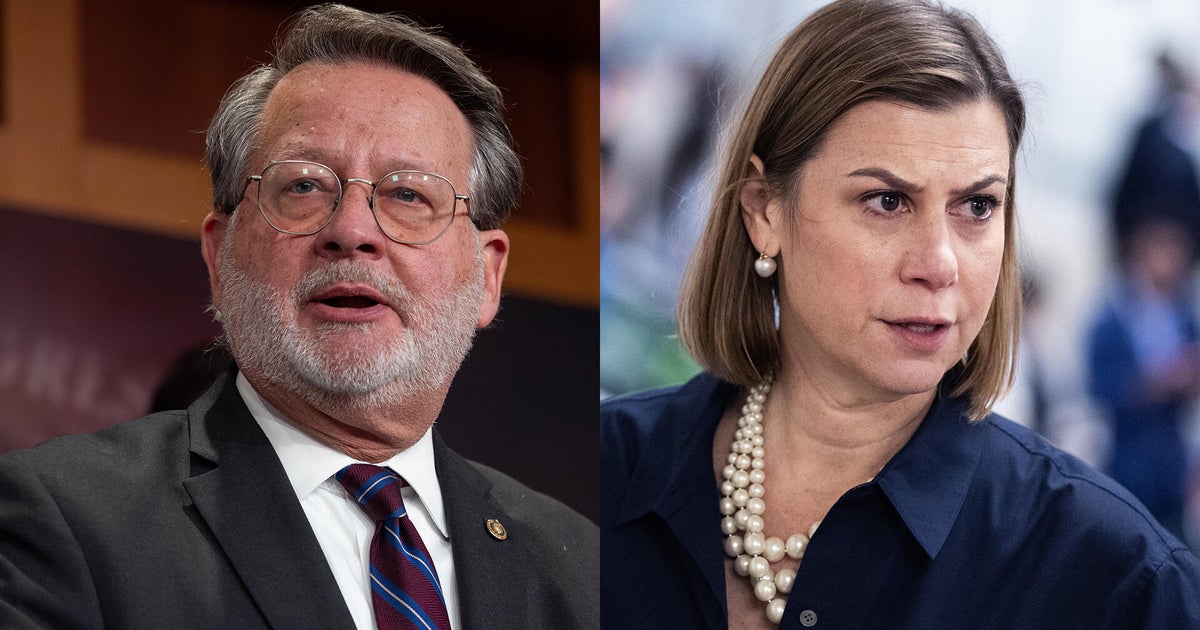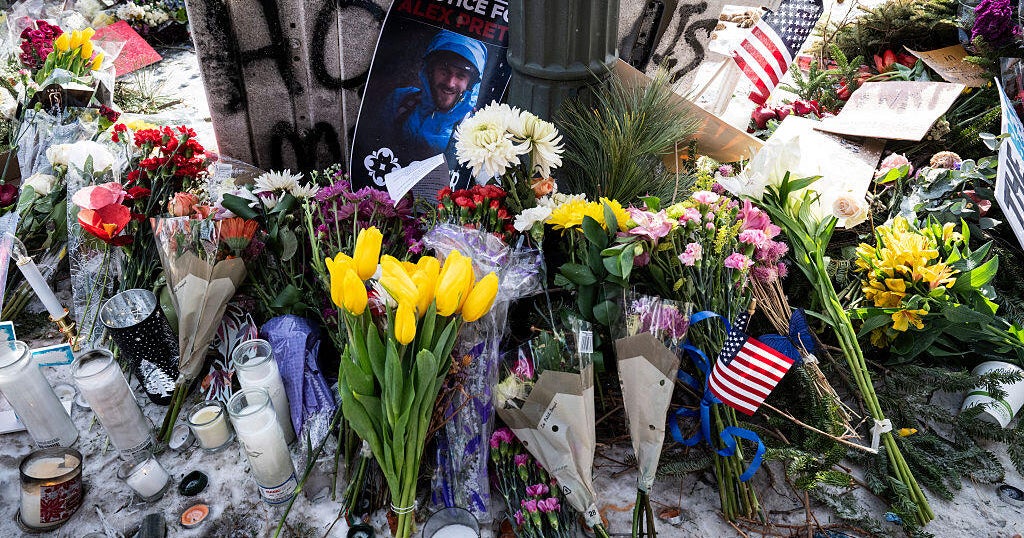U.S. intensifies efforts to address "Havana Syndrome," but answers remain elusive
Washington — The U.S. government is intensifying its efforts to address the effects of "Havana Syndrome" as reported cases proliferate and worries mount that its cause remains poorly understood and unidentified publicly, current and former U.S. officials say.
The steady drumbeat of incidents — dozens of which have been reported by diplomats, intelligence officers and other personnel on multiple continents and within the U.S. since the beginning of the Biden administration — has prompted a multi-agency race to investigate new cases, devise protective technologies and help existing victims get care.
In Congress, lawmakers of both parties are pressuring the administration to identify a cause and pushing through new funding for victims to help them defray medical costs.
But skepticism about the syndrome's toll in some corners and bitterness among victims for alleged past mishandling have resulted in frustrations with the government's response that are still simmering.
And current and former intelligence officials say they are increasingly wary that, while work on attribution continues, Moscow is receiving an undue boost by its informal association with the mysterious illness.
Havana Syndrome, which gets its name from the first known cases to be reported by U.S. officers in Havana, Cuba, in 2016, presents in a variety of neurological symptoms, and can include vertigo, ear ringing, nausea and intense headaches. Some people have been diagnosed with Traumatic Brain Injury (TBI), though physical damage to the brain hasn't always been detected. The Biden administration has begun referring to suspected cases — which now number about 200 — as "Anomalous Health Incidents" while investigations into their origin continue.
In 2020, a study by the National Academies of Sciences commissioned by the State Department said the "most plausible" cause was "directed, pulsed, radiofrequency energy."
One prevalent but unofficial hypothesis is that the cases are the result of attempted intelligence collection by Russian government operatives who are using directed energy technology to gather information from cell phones or computers, but which has damaging neurological effects on its human targets.
Several of the recent reports have come from U.S. personnel who, as attention to the matter has grown, have come forward belatedly to share suspicions they were affected.
Among them are two CIA officers who reported feeling symptoms while on U.S. soil, according to three sources familiar with their cases. One, a senior officer, described feeling symptoms characteristic of Havana Syndrome in Boston in late 2019. A second officer fell ill in Northern Virginia in 2020. Both had worked on Russia issues in their time with the CIA, the sources said.
Neither case has been previously reported.
Several dozen suspected incidents, including more than 20 reported by U.S. officials in Vienna, Austria, and more than a dozen others in different locations, have occurred in the past six months alone. One incident was reported as recently as two weeks ago, two people familiar with the matter said.
Whether the number of cases is actually increasing or more officers are coming forward as attention to the matter grows is unclear; current and former officials say both are possible.
But some also expressed concern that the increase in reported incidents was because the actor widely presumed to be behind them has not been openly confronted for years.
"In some ways Moscow benefits from the U.S. government's insistence on evidence and proof," said John Sipher, who spent nearly three decades at the CIA and for years led the agency's operations in Moscow. "While we work on attribution, the Russians gain a mystique from public speculation it might be them."
"American diplomats and their families are at risk, and have to change how they live and travel," he added. "While Moscow's actions are consistent with their aggressive tactics over the decades, these latest attacks are on a new level altogether and should not be tolerated by the West."
The government's response
In the early days of the Biden administration, national security adviser Jake Sullivan appointed a senior director at the National Security Council to organize and streamline the disparate efforts of the departments and agencies who have had employees affected — principally the Pentagon, State Department and CIA.
The effort has also involved standing up new, expert panels of intelligence officials, doctors and scientists charged with uncovering the cause of the incidents and devising tools to defend against it. The administration is conducting an intelligence review to determine whether past cases fit a previously undetected pattern.
So far, the U.S. intelligence community has said it has not determined the cause of the incidents or even whether a foreign actor is responsible, according to the Office of the Director of National Intelligence, which in a May statement also said "it is premature and irresponsible to speculate."
At the CIA, whose officers and their family members make up about half of the roughly 200 cases reported by U.S. personnel since 2016, Director William Burns has beefed up a dedicated medical team and shuffled the leadership of its internal task force, which was established in late 2020 by outgoing director Gina Haspel.
The new task force chief, who at one point led the CIA's Counterterrorism Center and remains undercover, is expected to boost the use of 'targeting' — a term in intelligence collection and analysis to describe a more focused, resource-intensive approach to identifying new leads or existing gaps — in order to invigorate the investigation, sources familiar with the official's background said.
Former intelligence officials who worked with the officer said he is an "inspired choice" by Burns, who has personally met with victims and said addressing the incidents reported by CIA officers was a "very high priority."
"This appointment will prove to be one of the most important during his time as the CIA Director," said Douglas Wise, a former career CIA officer and deputy director of the Defense Intelligence Agency. "Having served with this officer, I know he is highly respected as a leader and a role model for professionalism and objectivity."
In an interview last Thursday with NPR News, Burns said the agency was "throwing the very best we have" at the issue. He said the agency had tripled the number of full-time medical personnel dedicated to the issue and reduced the time it took to get employees care at Walter Reed National Military Medical Center.
Burns said Russia "could be" behind the incidents, but no definitive conclusions have been drawn. "[T]here are a number of possibilities," he said.
In June, a senior administration official said the incidents were raised briefly during President Biden's meeting with Russian President Vladimir Putin in Geneva. "[T]here was a — I would say a reference to it, but not a discussion," the official said.
The White House and the State Department have declined to comment further on the closed-door exchange.
Calls for accountability
Even amid the more robust government response, some who have suffered symptoms are calling for investigations into potential past mishandling.
The CIA's inspector general is already undertaking a review of how the cases were addressed, sources confirmed to CBS News, and has been conducting interviews with affected individuals for several weeks. CNN first reported the IG's review.
In a telephone interview, House Intelligence Committee chairman Adam Schiff, Democrat of California, said Democrats and Republicans on the committee had also been speaking with individuals who have firsthand knowledge of how the incidents had been handled. "There will need to be accountability," he said.
"We've been doing a deep dive into this issue for some time to analyze, first and foremost: what's causing this? Are people getting the treatment that they need? But also to look at mistakes and deficiencies in the agency's handling of this historically," he said. "So I think between our review and the [IG] investigation, we should be able to get the answers."
He said the committee had not yet decided what kind of work product might result from its investigation.
While the Senate Intelligence Committee is conducting "robust oversight" of the CIA's response, a committee official said, the panel does not currently plan to launch an additional independent investigation.
At the State Department, Blinken in March designated Pamela Spratlen, a former U.S. ambassador to Uzbekistan and Kyrgyzstan, to oversee the department's response and engage with affected employees. The Department launched a pilot program to collect baseline health information on officers ahead of their overseas deployments and established a partnership with the National Institutes of Health for medical assessments.
But some State Department victims have complained that the Department's efforts have been scattered, in part due to inadequate staffing and what they say is a lingering skepticism among its medical staff about the incidents' seriousness. They have also lamented that, unlike Burns, Secretary Blinken had not yet met in person with any victims. (He is expected to soon).
"The Secretary is personally committed to the safety and security of all personnel and family members serving overseas and will directly engage with personnel affected by unexplained health incidents," a State Department spokesperson said, adding Blinken had been following developments "closely."
The Pentagon said it was working with the National Security Council to investigate reported cases and link officers who report symptoms to medical evaluations and care. A spokesperson declined to comment on whether Defense Secretary Lloyd Austin had met or would meet directly with military personnel who had reported symptoms.
"The Secretary is focused on ensuring the Department makes available the resources needed to provide the appropriate reporting mechanisms and care to our personnel who have experienced anomalous health incidents," press secretary John Kirby said in a statement to CBS News. "While we cannot confirm specific numbers or details of reporting due to privacy and security concerns, every report is taken seriously and investigated."
"These are areas of active inquiry as a part of an NSC-led interagency process across the federal government to determine both the causes and source of these incidents," Kirby said.
Congressional pressure
In Congress, the incidents have become a rare bipartisan cause, as lawmakers of both parties have been taking steps to secure more funding for victims and applying public pressure to identify a perpetrator.
Last week, Senator Jeanne Shaheen, Democrat of New Hampshire, announced that the Senate's massive annual defense funding bill would include provisions that would secure millions of dollars in funding for victims and require quarterly reports to Congress on the government's investigations into "causation, mitigation efforts and treatment of personnel." The bill was passed by the Senate Armed Services Committee last Thursday and will next be taken up by the full Senate.
"It's shameful that U.S. public servants and their loved ones afflicted by these directed energy attacks have endured such hardships to access the care they need, and that we still do not have clarity on the causation," Shaheen said in a statement.
A senior administration official said the White House looked forward to "working constructively with Senator Shaheen on her legislation to ensure the safety and security of Americans serving around the world, and help any affected individuals get the care they need as quickly as possible."
On Monday, the House is expected to pass a measure designed to increase financial support to U.S. officials who have suffered brain injuries resulting from Havana Syndrome, and to institute a regular, congressional reporting requirement for the State Department and CIA. The legislation was passed unanimously by the Senate last month.
Schiff, who introduced the House bill, said it was designed to "routinize the provision of care" for victims, which had been "an area of great concern for us for some time."
"Once we understood the magnitude of this and that there were deficiencies in the agency's handling of it, we did take action," he said.
Unlike some of his Senate counterparts, Schiff has refrained from calling the incidents "attacks," and said he's waiting for the intelligence community to come to a more definitive conclusion.
"I think the gravity of this can't be overstated. But there's so much that we don't know as to the cause," he said. "I think we have to reserve judgment until we get the answers, and then when we do have the answers, there needs to be real accountability for any who may be responsible."
Eleanor Watson contributed to this report.






